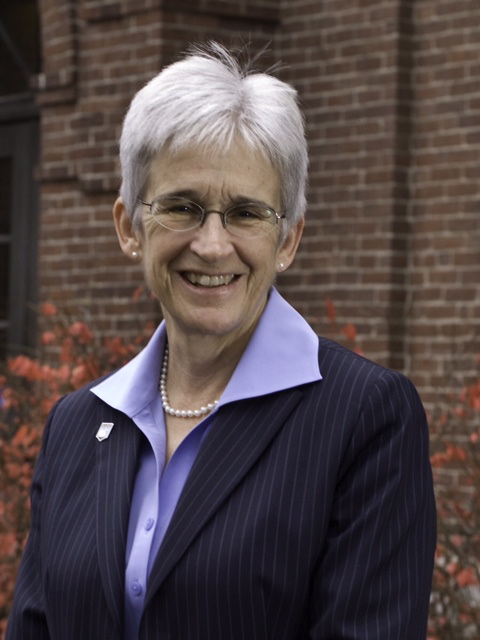ORONO — Longtime University of Maine System faculty member and administrator Susan Hunter has been named temporary president at the flagship campus in Orono.
It is the first time a woman has held the top position at UMaine.
Hunter, currently vice chancellor for academic affairs for the seven campuses in the system, will begin the job July 7. She will be president for two years.
“Dr. Hunter’s depth and breadth of experience at our flagship campus is unsurpassed,” Chancellor James Page said at a press conference on campus. “She is already extremely well-known throughout the state as a tireless advocate for public higher education. She is the clear choice to advance the University of Maine.”
Hunter, a cell biologist, previously worked as executive vice president for academic affairs and provost on the Orono campus. She replaces Paul Ferguson, who is leaving to be president at Ball State University in Indiana.
Ferguson was the second-highest paid employee in the UMaine System, with a salary of $270,000. Hunter’s salary will be $250,000. Her 2013 salary as vice chancellor was $195,196. Page said Ferguson’s base salary was also $250,000, but he received bonuses for reaching certain goals. The trustees are no longer offering those bonus programs, he said, so Hunter would not get additional funds.
Hunter said she was happy to be coming back to the Orono campus, where she worked for most of her career. Page and Hunter said the top priority is continuing the work of UMaine’s Blue Sky Plan, which is entering the fourth year of a five-year plan to reorganize the campus, build enrollment and boost resources for key areas where Orono already has been recognized for distinguished programs. Hunter emphasized that she was at Orono when the plan was created, and being president will allow her to see it through.
“I’m very focused on this,” she said, adding that she would be creating and launching a major fundraising campaign in the coming months. “This is a plan that I was right here, on the ground, as it was developed.”
Hunter has been at the system office since September 2013, and has led a new initiative overseeing a systemwide review of academic programs.
The review is part of a restructuring of the system’s academic offerings, aimed at saving money and helping each campus carve out its own academic specialties.
Hunter said she planned to retire after her two-year term and would not be a candidate for the permanent position.
“I think it’s a good choice,” said UMaine history professor Howard Segal, who sits on the executive committee of the Faculty Senate. “The only reservation I have is that anyone who is not from the outside faces the challenge of serving the interests of both the flagship and the system, and those two things are not necessarily compatible.”
UMaine Faculty Senate President Jim McClymer said that while Hunter may be a good choice for president, he was concerned that her new position leaves a void at the system office as it strategizes how to change the courses that are offered on each campus.
“The system’s actions are hard to fathom as it leaves no qualified academic in the system office and no academic leadership on program alignment, her primary duty as vice chancellor,” McClymer said. “We should all be concerned that while knowledge is at the campuses, decisions are made at a central office mostly focused on itself.”
Page said her system duties will be divvied up among existing staff in the short term, and an official search for a permanent president is likely in the coming months.
He said he decided to appoint an interim president in the meantime since there were so many initiatives at UMaine already underway and the system needed strong leadership immediately. A full search for a campus president, he said, could take six months to a year.
“UMaine’s forward momentum must not be compromised,” Page said. “None of these issues can be put off for a later time.”
It’s not the first time Page has appointed an interim president. He appointed Theodora Kalikow to a two-year presidency at University of Southern Maine soon after he took office in 2012. A search for Kalikow’s replacement starts this summer.
The system is facing a significant ongoing financial crisis that officials say is caused by flat state funding, declining enrollment and tuition freezes. Earlier this year, the trustees dipped into emergency reserve funds to balance the budget, despite deep cuts across the system.
The trustees recently released a draft strategic plan that would cut about $60 million through workforce reductions over the next five years as part of an effort to close a projected $69 million budget deficit by 2019.
“At this critical time, we have turned to a seasoned pro,” trustee chairman Samuel Collins said.
“Susan is the natural choice to come home and lead the plan that she was a part of creating.”
Her appointment will be confirmed by the trustees’ executive committee later this month.
Send questions/comments to the editors.



